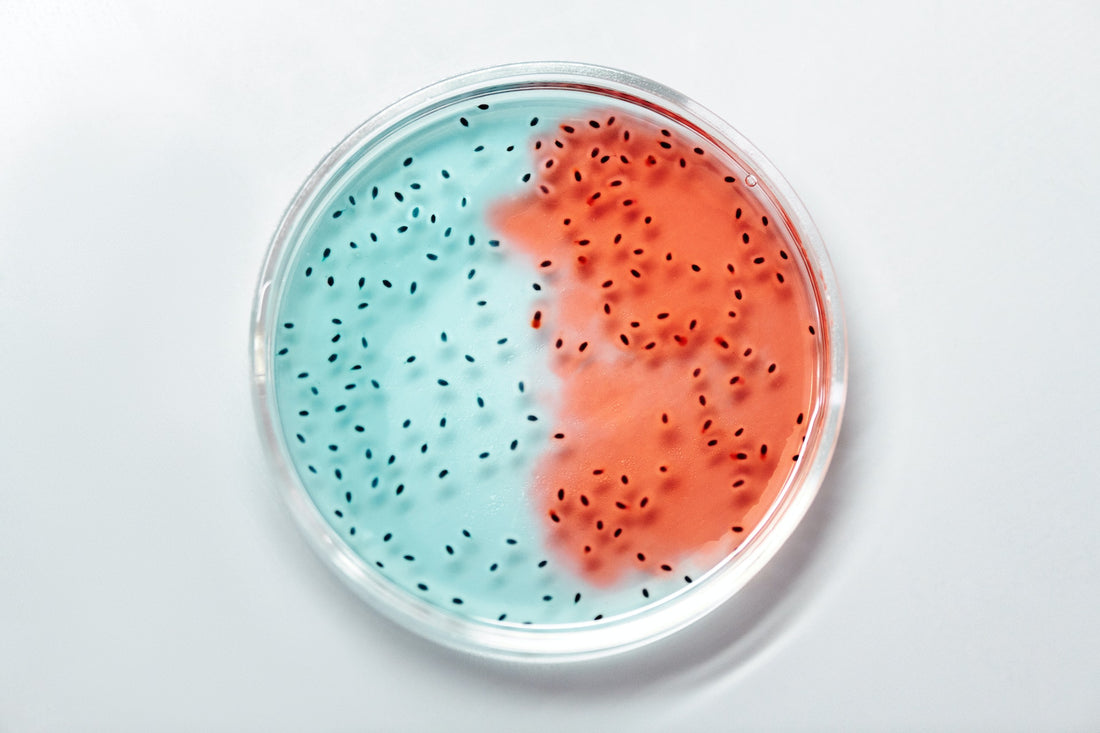
What Are the Benefits of Good Bacteria Versus "Bad" Bacteria?
Share
The ecosystem of the earth is comprised of you humans, animals, plants, and microorganisms such as bacteria, fungi, parasites, and viruses. There are millions of species of bacteria harboring in the body of humans. Bacteria are also present in plant parts and on the objects and surfaces that we come in contact with on a daily basis.
While bacteria are largely associated with infectious conditions, some bacteria are actually considered helpful for improving health and protecting us against diseases. Some bacteria – which are often termed healthy bacteria – residing in our gut make up the gut microbiome, which plays a key role in improving immunity and digestion.
However, unhealthy bacteria that enter our body during respiration or the intake of food are known to cause infectious conditions. Yet, even these unhealthy bacteria do have a role to play in maintaining health.
Here is a brief discussion about the benefits of good bacteria versus bad bacteria with respect to human health.
What Are the Benefits of Good Bacteria Versus Bad Bacteria?
1. They Improve Gut Microbiome
 The human gut comprises trillions of bacteria that together form a gut microbiome, also referred to as gut flora or gut microbiota.
The human gut comprises trillions of bacteria that together form a gut microbiome, also referred to as gut flora or gut microbiota.
Research studies have revealed that the gut microbiome includes healthy as well as unhealthy bacteria. The healthy strains of bacteria such as Lactobacillus have been found to support the process of digestion by promoting the breakdown of food and improving the release of nutrients into the bloodstream.
Additionally, these healthy bacteria also enhance the gut-brain axis and boost the functions of the immune system. Some foods called probiotics can contribute to the growth of healthy bacteria in the gut thereby enhancing the diversity of these healthy bacteria.
Hence, it is advisable to consume foods rich in probiotics that can stimulate the growth of healthy bacteria in the gut in order to derive the benefits associated with healthy bacteria.
Want to enjoy the benefits of good bacteria by “seeding” your gut with beneficial organisms? These homemade fermented food recipes are full of probiotics that restore your gut health!
2. They Improve the Body’s Resistance to Harmful Microorganisms
 Most people do not know that unhealthy bacteria, which are known to cause diseases, can also be helpful to humans in several ways.
Most people do not know that unhealthy bacteria, which are known to cause diseases, can also be helpful to humans in several ways.
Exposure to bacteria in certain forms has been associated with improved resistance of the body against those specific microorganisms. Clinicians and scientists have noted that people who are exposed to certain bacteria on a frequent basis tend to develop a natural resistance toward them. These conditions also contribute to the development of immunity against a wide range of other microorganisms.
On the other hand, it has been observed that people who adopt extreme hygienic precautions to the extent of being obsessed with cleanliness tend to have a weaker immunity due to the complete absence or a very low exposure to the microbes that deprives the immune system of an opportunity to develop its natural disease-fighting potential.
3. They Maintain Your Body’s Natural Internal Ecosystem
Bacteria, including healthy and unhealthy bacteria, form a part of the ecosystem and help to maintain a host-microbe equilibrium.
The microbes entering the body of humans need access to sufficient nutrients, which they have to gain by overcoming physical forces in the form of peristalsis of the digestive tract. They also have to thwart adaptive and innate defense molecules released by the immune cells. These are host ‘signals’ that the microbes must adapt to.
Conversely, microbial toxins, metabolites, anti-defense molecules, and their physical adherence to the cells and tissues of the host serve as microbial ‘signals’ thus triggering an immune response in humans.
Similarly, the good and bad bacteria thriving in the external environment have to fight adverse conditions while gaining benefits in the form of nutrients from plants.
Gut bacteria live in a commensal manner inside the body of a host and within the environment. They supply essential nutrients, aid in the breakdown of cellulose, and promote several bodily functions. Some bacteria also help in the breakdown of dead tissues inside the human body as well as in the environment. For example; Firmicutes and Bacteroidetes support the breakdown of undigested food remnants. These are some functions of good and bad bacteria that point to the role played by them in maintaining the ecosystem.
Conclusion
Bacteria perform several functions such as creating a healthy and diverse gut microbiome, improving the body’s resistance, and maintaining the ecosystem. Further research on the benefits of good and bad bacteria is expected to provide better insights into newer therapies for protecting humans against diseases and improving their health.
References:
- https://pubmed.ncbi.nlm.nih.gov/33086688/
- https://www.ncbi.nlm.nih.gov/pmc/articles/PMC4339954/
- https://www.ncbi.nlm.nih.gov/pmc/articles/PMC4425030/
